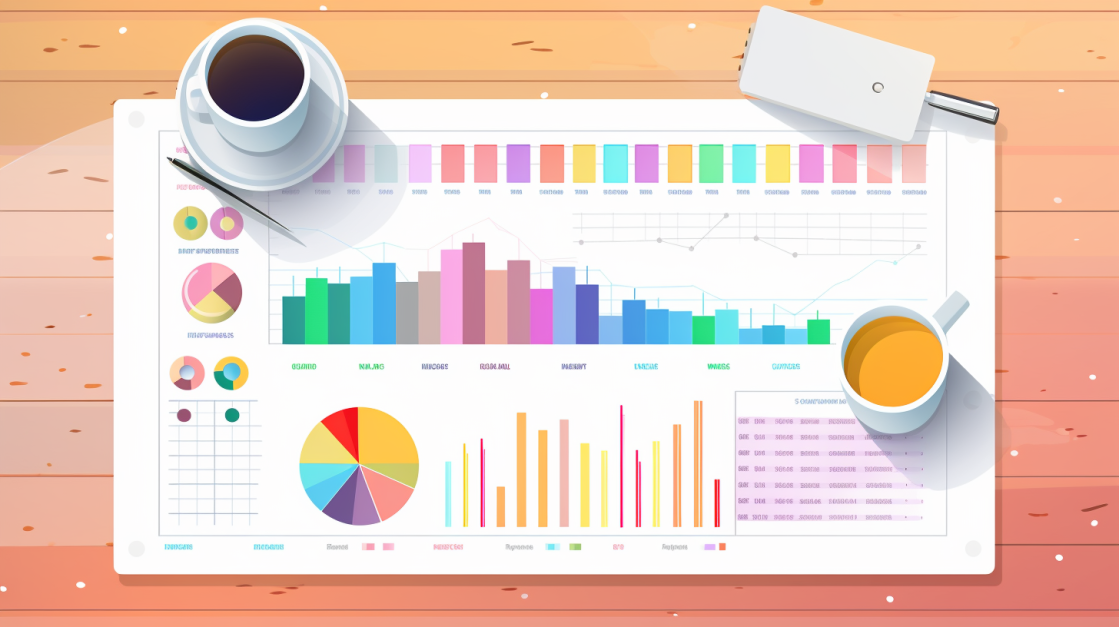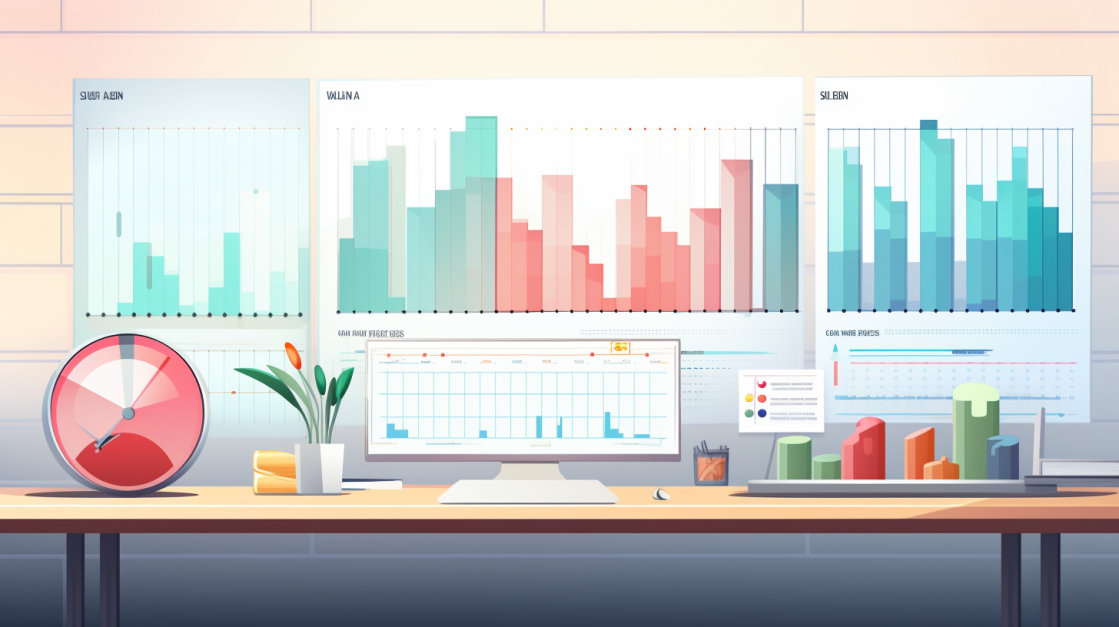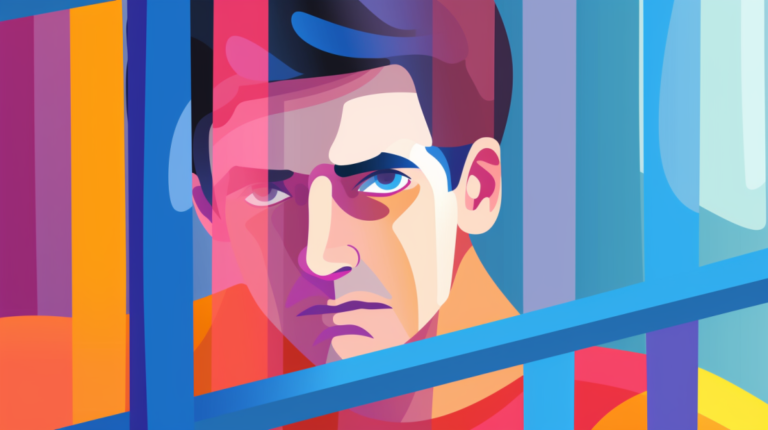How Does Debt Affect Your Credit Score Over Time

Figuring out how debt impacts your credit score often feels like trying to solve a complicated jigsaw puzzle. Just like you, I’ve also found myself scratching my head over this conundrum – especially considering that 30% of your FICO Score is closely tied to the amount you owe.
My goal here is to help clarify some key components including different types of debts, their influence on your credit scores and offering practical ways on managing it all. Intrigued? Well, there’s plenty more insightful info just waiting for us around the bend!
Key Takeaways
- Your credit score is made up of five parts: payment history, amounts owed, length of your credit past, mix of credits and new credit.
- Pay on time and have low balances to keep your score good.
- Owing too much money can lower your score. This means you’re bad at dealing with debt.
- New debts or loans might hurt your scores more. Companies worry if you open many accounts fast.
- Debt agreements you make could lead to a lower score but it can get better over time.
- Start making full payments to improve scores after settling the debt.
- Unpaid bills from a hospital could affect my rating for around seven years, but paying off helps!
- Bad unpaid debts will worsen the overall picture even after paid in full!
Understanding Credit Scores

Understanding credit scores begins with grasping five core aspects: your payment history, amounts owed on loans or credit cards, the duration of your personal credit history, diversity in types of credits you have handled (credit mix), and record of new applications for credit.
Each element carries different weightage in determining our overall score. For instance, while timely payment can boost scores significantly; high debt balances could exert a negative pull.
Older is your account history stronger becomes your credibility along with a healthy variation across different types such as revolving or installment accounts playing to favorability too.
Lastly remember, excess application for fresh lines makes lenders question financial stability hence often resulting into lowering points!
Payment History
Paying on time is a big deal for your credit score. Late payments can hurt it. Do you know that each late payment gets noted? Yes, even missing one payment will show up! The more often you pay late or not at all, the worse your score will be.
Also, recent late payments do more harm than old ones. If you missed a payment years ago but have been good since then, it hurts less. So, always try to pay what you owe and when you owe it.
This helps to build up a good payment history over time which makes your credit score better.
Amounts Owed
Owing money is a big part of your credit score. It counts for 30% of the total in fact! Credit bureaus keep an eye on how much you owe compared to your credit limit. This is known as your “credit utilization rate“.
If you use too much of what’s available, it will hurt your score.
For example, if I have a $5,000 credit card and owe $4,500 on it, my credit utilization rate is high (90%). This means I’m close to maxing out my card! But let’s say I cut back and only owe $1,000 instead.
Now my rate drops to 20%, which makes me look far better in terms of financial responsibility. The lower the rate, the more points go toward my overall score. So keeping these debts low can mean higher marks for me!
Length of Credit History
Your credit history length plays a vital role in your credit score. This is simply because it shows how long you have been borrowing money. The longer the time, the better. Lenders like to see that you’ve been able to handle debt well over a long period of time.
So, keep those old accounts open – even if you don’t use them anymore! They’re proof of your good habits with money, leading to higher credit scores over time. But make sure not to go in for new loans or credit cards too often; it may look risky and could hurt your scores a bit!
Credit Mix
Credit mix has a role in your credit score. It tells about the kinds of debt you have. These can be loans like mortgage or car loan, or credit cards. Credit bureaus look at this to judge how well I handle debt.
A good mix shows them that I pay back all kinds of debt on time. This mix is around 10% of my total score. So, for a strong credit score, it’s best to keep a healthy balance between loans and credit cards.
New Credit
Getting new credit can affect your credit scores. Companies check your score before giving you a loan or a new card. This is called an inquiry and it shows up on your credit report.
Too many inquiries in a short time might scare off possible lenders. It makes them think you’re in money trouble. Be wise when applying for new credit to keep from hurting your scores.
Impact of Debt on Your Credit Score

Debt, believe it or not, wields a hefty influence on your credit score. Digging deeper into how debt settlement can impact your score may hold some surprises. Long-standing debts on your credit report weigh heavy and drag down your rating over time.
Even unpaid medical bills that end up in collections have adverse effects. When you incur bad debts that are charged off by creditors, this too sends ripple effects through your financial profile negatively impacting our scores.
How Debt Settlement Can Affect Your Score
Debt settlement can hurt your credit score. It shows you did not pay back all the money you borrowed. Lenders may see this as bad news. They might think it’s hard for you to handle debt.
Your credit score may fall because of debt settlement. It takes time for your score to get better after doing this process. You can also talk with a professional to help guide you through it without damaging your credit too much.
Duration of Debt on Credit Report
If you owe money, it stays on your credit report. This can change your credit score in a bad way. Late or missed payments hurt your score the most. They stay on your report for a long time too.
So, it’s best to pay what you owe as fast as you can. This helps make your score better over time. Opening new cards or loans makes things worse though. More debt means more risk, and that takes away points from your credit score!
Effect of Medical Debt Collections
Medical debt collections can hurt my credit score. When I pay late or not at all, this shows up on my credit report. Big amounts of unpaid medical bills can make it hard for me to get new credit later.
These debts stay on my report for as long as seven years! The good news is, paying them off helps me get back in the game and boosts my score over time.
Impact of Charged Off Bad Debts
Charged off bad debts are a big problem for your credit score. This happens when the lender decides you can’t pay back what you owe. It sends a message that you did not meet your promise to repay your loans, which scares away other lenders from giving you new credits.
Also, these charged-off debts stick around on your report for up to seven years! During this time, it pulls down your credit score like a heavy stone tied to its neck. What’s worse? Even after paying them off fully, they still leave behind some dark marks on the scorecard.
So avoid getting into this position at all cost!
Managing Debt for a Healthy Credit Score
Taking control of your debt is a vital step to maintaining and improving your credit score. It’s more than just paying off what you owe, it involves navigating tricky waters like whether to settle or stay current with debts, how to handle old debts that have fallen off your credit report and the implications of removing debt settlements from your records.
Dive deeper as we unravel these complex issues in our blog!
Debt Settlement vs. Staying Current
Dealing with debt can be a challenging task, and it’s important to understand the key differences between debt settlement and staying current on payments.
| Debt Settlement | Staying Current |
|---|---|
| Debt settlement is the process of negotiating with creditors to reduce the amount owed. This approach can provide relief for those struggling with large debt, but it comes with potential drawbacks. | Staying current on debt means making all payments on time. This can be a safer, though often more challenging approach, particularly if debt amounts are high. Maintaining timely payments, however, can contribute positively to a credit score. |
| This method can cause an initial drop in your credit score. The decrease results from the fact that creditors usually have to write off part of your debt, which negatively affects your credit report. | By making your payments on time, you’re showing lenders that you can responsibly manage your debt. This approach can help maintain and even boost your credit score. |
| Despite the initial drop, your credit score can improve over time if you exhibit responsible financial behavior post-settlement, such as making timely payments on your remaining debt. This is because your amount of owed debt will decrease significantly. | Even though staying current with payments might not reduce your owed amount as quickly, it’s generally considered a safer approach for maintaining a good credit score. It may be more challenging financially but can yield better credit outcomes in the long run. |
Each approach requires careful consideration of your individual financial circumstances. It’s always recommended to seek advice from a financial adviser before making a decision.
Should You Pay Off a Debt or Settle?
Paying off a debt or settling it comes with different results for your credit score. If you pay it all, this will give your score a good boost. In fact, regular and on-time payments help keep your score healthy.
But sometimes, you might not have enough money to pay the whole debt. Here is where settling can be an option. This means you agree to pay some of the debt but not all of it. While this can still help ease your financial burden, remember that settled debts may look less positive on credit reports than those fully paid off.
Can Debt Settlement be Removed from Credit Report?

Yes, it is true! There is a chance that debt settlement can be removed from your credit report. It’s not always easy but there are ways to do it. One method is disputing the information on your report with the credit bureau.
If they see an error, they may take off the debt agreement details.
Another way is talking straight to who you owe money to and ask them for help. Sometimes, if you arrange to pay some or all of what you owe, they might agree to wipe the settlement from your report.
But remember, this doesn’t always work out in every case.
Paying Debts That Have Fallen Off Your Credit Score
Just because a debt falls off your credit score, it does not mean you shouldn’t pay it. In fact, lending companies can still see old debts. This can affect your chances of getting a loan or credit card.
It’s always good to clear these types of debts for this reason. Paying them off helps make your credit use look better too. It shows you are doing the right thing with money in a steady way.
Keeping an eye on your credit report is key here! Errors need to be fixed straight away so they do not harm your score more than needed.
Conclusion
You have the power to steer your credit score. Healthy habits and careful steps can boost it over time. Remember, pay on time, keep balances low and check for errors often. So don’t worry if debt is high – you can fix that score with smart moves!
FAQs
1. How does debt affect your credit score?
Debt affects your credit score in significant ways. Outstanding debts, credit card debt, and personal loans contribute to your debt-to-income ratio which factors into your overall creditworthiness.
2. Can certain types of debts harm my credit scores more than others?
Yes, defaulted loans and unpaid debts can have a greater negative impact on your Experian or Credit Karma scores compared to other forms of debt.
3. Do actions like financial counseling or bankruptcy play a role in my Credit Rating over time?
Financial Counseling may help with your Financial Management but Bankruptcy is seen as severe by the scoring model used by most Financial Institutions such as Bankrate; it can drop a good credit rating significantly.
4. Can loan inquiries also change my credit score?
Yes! Recent applications for new lines of Credit including Mortgages lead to Inquiry checks that slightly affect and lower one’s Scores over time.
5. What happens when I use Debt consolidation or Debt relief strategies on my outstanding Debts?
Using these methods like negotiating settlement for Defaulted Debts with Collection Agencies could improve management thereby lowering the negative Information shown withinoriginal Creditor files during Credit Monitoring Checks
6. Does settling all delinquent accounts instantly repair my total Score calculations?
While settling Delinquent Accounts helps, true Repair often requires long-term planning including controlling personal finance habits like Card Utilization Ratio along with removing Time-limited Negative Info from Reports following Dispute Settlements under Fair Practices Act ( FDCPA) Regulations protecting Consumers’ Rights against legal Action on unresolved Debts






